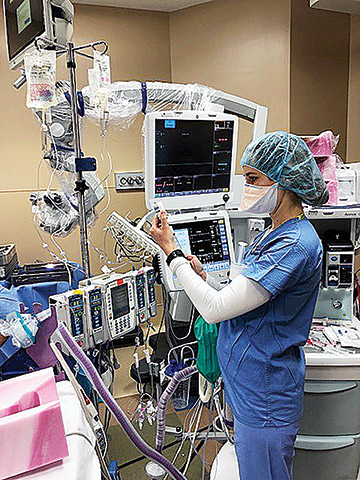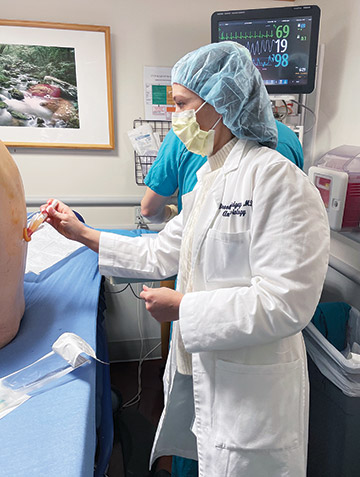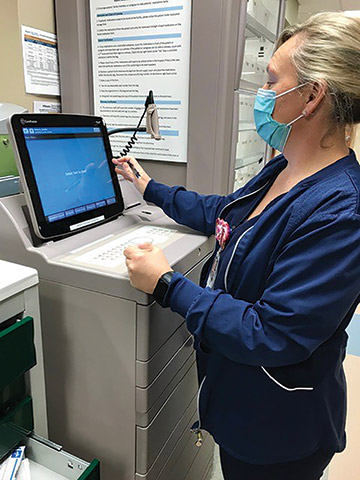Enhanced Recovery After Surgery (ERAS) protocols involve standardized care pathways that limit post-op pain with minimal use of opioids. Patients who enter the pathways often experience less discomfort, require limited narcotics and are able to move through the surgical experience faster, comfortably and with fewer side effects. That sounds good on paper, but how does it play out in practice?
"There are so many success stories," says Brooke Chidgey, MD, an associate professor of anesthesiology and a pain management specialist at University of North Carolina School of Medicine in Chapel Hill. "I remember the positive impact ERAS protocols had on a patient who underwent a complex procedure to remove cancerous growths from his pancreas." The patient was instructed to drink a carbohydrate supplement two hours before surgery and arrived hydrated, which made starting the IV easier. In pre-op, he received an epidural and was given acetaminophen, pregabalin and celecoxib to preemptively reduce tissue inflammation and post-op pain.
During surgery, Dr. Chidgey closely monitored the patient's fluid levels and managed his pain without the use of opioids. A day after the procedure, the patient experienced little pain and was able to ambulate. "His ability to get up and moving soon after such a significant procedure helped to prevent blood clots and pneumonia," says Dr. Chidgey. "Not having to administer IV opioids to manage pain levels also helped his intestines respond quickly, which is important after a big abdominal procedure."
Surgery causes physiological stress, and the body responds to the physical trauma by trying to protect itself and working to heal, notes Dr. Chidgey. "These responses release stress hormones and inflammatory mediators that can cause swelling, nerve irritation and pain," she says. "If we can blunt that response, by decreasing inflammation or nerve excitability, the result is often better pain control postoperatively."
Getting ahead of pain with a targeted and multidisciplinary approach makes sense for complex cases, but are ERAS protocols worth implementing for less invasive surgeries? Absolutely, says Susan Hukill, DNAP, MSNA, CRNA. "Even a single pre-op dose of acetaminophen before a 'minor' surgery is beneficial," explains Dr. Hukill, chief nurse anesthetist at St. David's South Austin (Texas) Medical Center. "Regardless of how big or small the procedure, ERAS pathways benefit the outpatient population."
.svg?sfvrsn=be606e78_3)



.svg?sfvrsn=56b2f850_5)